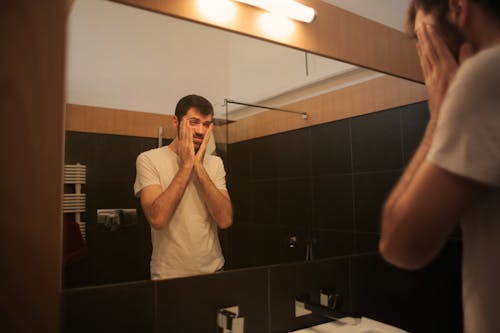Our society values hard workers. It’s an admirable trait, linked with dedication and even passion. But too often, this concept of having a good work ethic can mutate into a form that is unhealthy, both for us as workers and for our social expectations of each other. We equate the idea of someone having a good work ethic with the amount of hours or overtime they put in, rather than the output of their work. If someone is sacrificing their personal time and other commitments in favour of work, we value that sacrifice and label it as having a ‘good work ethic’, rather than wondering why that output can’t be achieved in the time allotted to it ie; your working hours.

Because of this, if someone is working well and producing quality output within their allotted hours and doesn’t do the overkill, overtime, burning-out kind of work that we associate with good output, we consider that ‘doing the bare minimum’. There is an expectation in our society these days that if you really care about your work, you'll be burned out, miss out on things and you’ll make sacrifices for it. And part of that sacrifice can be our rest ethic. But if we sacrifice our rest ethic, in the long run it will lead to further burnout and longer recovery time, meaning less achieved in the long run.
Getting to the point of burnout can be a result of many things. Some doctors believe that, although burnout itself is not a medical condition, that it is the result of conditions like depression or severe stress. But mostly, burnout is the emotional or physical toll on the body, generally as a result of feeling or being overworked. It can make sufferers feel exhausted, lost and feeling like their contributions and achievements don’t matter. The lack of energy, enthusiasm and satisfaction can leave people disillusioned with their job, resorting to destructive behaviour, struggling to switch off after work and feeling unsatisfied with their career.

Having a good rest ethic can combat this burnout, making the day-to-day output of work easier to manage in the long run. It’s about taking time just for yourself. Don’t necessarily think self-care with facemasks and bubble baths (although if that’s what you’re into, go for it). It’s about taking the time to do nothing. Not your laundry or tidying the house or your side projects – just genuinely unproductive, relaxing nothing. Self-care isn’t necessarily the same thing, as often, some people’s form of self-care is feeling organised. So that includes things like doing your shopping, meal prep, clearing out your room – all great things to do to feel better and more organised – but they’re not activities that fall under rest ethic.
Cultivating a rest ethic is being comfortable with yourself when you’re not being productive. Watching a mindless show that you enjoy, reading a book that you really like (not one that you have to read for a book club or class or for anyone but yourself), meditating or going for a walk just for you, with no particular destination or errand to run. Its an important skill to learn, to check out of productivity mode and to move into the restful state that allows you to recuperate and feel well rested before tackling tomorrow’s tasks. Some important things to bear in mind when cultivating a work ethic are:
Learn your limits

It’s important to know your own body and mind and what they can handle. If you’re doing insane overtime and can feel your mental health slipping because of it, it’s important to set a boundary there. Or when you know that it can take an hour sometimes to do a task that should take 15 minutes when you’re sufficiently rested, then you know your rest time is not sustaining you well enough. It’s all a cycle; in order to work well, you must rest well and in order to feel like you deserve to rest well, you must work well. The importance is in finding the balance, knowing your limits and setting boundaries accordingly.
Quantity vs quality

We’ve all heard this one a hundred times, but it can be hard for that to sink on a serious level when our society measure sour work performance by our output and how tired we are. It’s all about working well, not working to output. A bigger work output does not necessarily mean a better work output. Work ethic is about more than just a number at the end of the day. Focusing on the quality of your work will bring greater job satisfaction, better quality work and better balance in your work life.
Personal projects are not restful

How often do you finish a day’s work and think, great, now I can work on my other projects? We all have some passion, some side hustle that’s our ‘outside-of-work’ way to blow of steam. But these things are not the same as resting. Whether it’s a blog, a small business, a craft or a self-development project, even if it feels like you’re working on something enjoyable, it does not necessarily mean its restful. It’s imperative to ‘fill ourselves up’, when our day in work is spent ‘pouring ourselves in’. If there is no rest time to fill up the reserves then come our regular workday, we have nothing left to give. Personal projects are great things to have and allow for passion outside of work to be explored and lets us develop personally. But they’re another thing in our lives that require our energy, instead of building our energy up.

The pressure to work hard and always self-improve is huge in our society. Enough is never enough, we all want to work harder, achieve more and say we made it. But that mentality can mutate into something harmful that holds you back if we don’t look after ourselves and guard our boundaries between our work and rest lives. A good work ethic (in terms of quality, not quantity) are important for satisfaction and achieving our goals. But a good rest ethic is just as important for those things It’s time to stop pretending that one can exist without the other and make a conscious effort to make time and space in our lives to cultivate and practice a good rest ethic.



